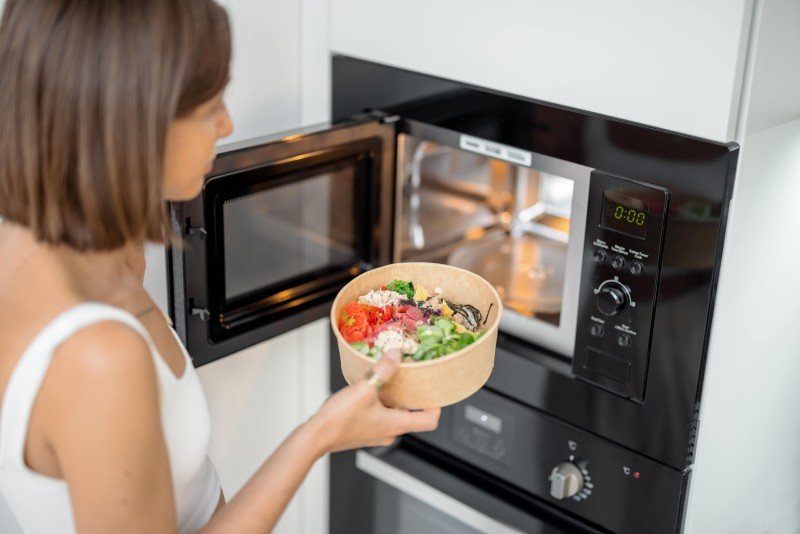The Best Advice You'll Receive About Oven And Hob
Understanding Ovens and Hobs: A Comprehensive Guide
When it comes to cooking home appliances, ovens and hobs are amongst the most essential tools found in modern-day kitchen areas. They play critical functions in meal preparation, changing raw components into tasty meals. Comprehending the differences in between numerous types of ovens and hobs and how to pick the ideal one can make a considerable distinction in cooking efficiency and food quality.
This post explores ovens and hobs in detail, providing insights into their types, functions, advantages, and typical FAQs. Whether you are a seasoned chef or a novice cook, this info will assist you make notified decisions for your cooking requirements.
Types of Ovens
Ovens come in numerous types, each designed for particular cooking approaches and designs. Here is a detailed take a look at the most typical kinds of ovens:
Type of Oven
Description
Best For
Standard Oven
Makes use of heating elements located at the top and bottom for even cooking.
Baking, roasting, and general cooking
Convection Oven
Features a fan that circulates hot air for fast and even cooking.
Baking pastries and cookies, roasting meats
Steam Oven
Uses steam to prepare food, maintaining wetness and nutrients.
Veggies and fish
Microwave
Rapidly cooks food using microwave radiation.
Reheating and quick meals
Wall Oven
Built straight into the wall for space-saving cooking solutions.
Small cooking areas and modern styles
Skill Level
Provides several cooking modes including baking, broiling, and toasting.
Flexible cooking needs
Types of Hobs
Hobs, likewise called cooktops, can be found in various types based on their fuel source and design. Comprehending these choices can help in finding the best fit for your kitchen setup:
Type of Hob
Description
Best For
Gas Hob
Uses gas flames for cooking, providing immediate heat control.
Traditional cooking approaches
Electric Hob
Utilizes electric coils or induction components to heat pots and pans.
Even heat distribution
Induction Hob
Utilizes electro-magnetic energy to directly heat pots, offering quick and efficient cooking.
Energy-efficient cooking
Strong Plate Hob
A kind of electric hob with strong plates that takes time to warm up but retains heat well.
Sluggish cooking
Ceramic Hob
Functions a glass-ceramic surface permitting easy cleaning, with electric heating components listed below.
Visual appeal
Elements to Consider When Choosing an Oven and Hob
Choosing the ideal oven and hob mix requires careful consideration of several elements. Below is a list of crucial aspects to keep in mind:
Cooking Style
- Are you a daily cook or a periodic baker?
- Do you prefer steaming or frying?
Kitchen Size
- What space is readily available in your kitchen for the home appliances?
- Will you need integrated or freestanding models?
Fuel Source
- Do you have access to gas, or would you prefer electric?
- Are you interested in induction cooking innovation?
Spending plan
- What is your budget plan for buying an oven and hob?
- Are you thinking about a high-end design or a more economical choice?
Energy Efficiency
- Are you aiming to minimize your energy usage?
- Do you prefer devices that come with high-efficiency scores?
Benefits of Ovens and Hobs
Both ovens and hobs bring unique benefits to the kitchen. Here's a summary of some benefits:
Ovens:
- Versatility: Able to manage a wide variety of cooking methods from baking to roasting and broiling.
- Consistent Results: Even heat circulation provides reputable cooking outcomes.
- Big Capacity: Ideal for big meals and batch cooking.
Hobs:
- Control: Gas hobs use instant heat changes, useful for precise cooking.
- Effectiveness: Induction hobs are understood for their quicker heat-up energy and times effectiveness.
- Independent Cooking: Multiple hobs enable for cooking a number of meals at the same time.
Choosing the best ovens and hobs is essential for anyone looking to boost their cooking abilities and kitchen efficiency. By understanding the various kinds of each device, alongside their advantages and features, customers can make educated decisions that cater to their cooking habits and preferences.
As cooking areas evolve, so do the innovations surrounding cooking home appliances. Buying Fan Ovens For Sale of an oven and hob can cause much better cooking experiences, higher food quality, and even enjoyable time invested in the kitchen.
Frequently Asked Questions (FAQs)
What is the distinction in between convection and conventional ovens?
- A stove utilizes a fan to flow air for even cooking, while a conventional oven relies only on the top and bottom heating components.
How do induction hobs work?
- Induction hobs utilize electro-magnetic fields to directly heat pots and pans made of magnetic materials, resulting in much faster cooking times and more energy effectiveness.
Are gas hobs safer than electric hobs?
- Security depends on usage and installation. Gas hobs need appropriate ventilation and can provide a fire risk, while electric hobs might posture dangers of burns due to their hot surfaces.
Can I bake in a steam oven?
- Yes, a steam oven can be used for baking, frequently resulting in moister and fluffier baked products, particularly breads and pastries.
What should I search for in an integrated oven?
- Search for functions like capacity, cooking modes, energy efficiency scores, and ease of cleansing.
By considering the details and guides provided in this article, readers can easily navigate the world of ovens and hobs, making sure that they pick the best appliances to suit their culinary requirements.
